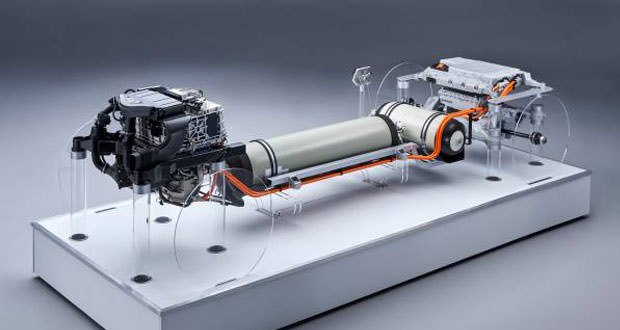I Hydrogen NEXT: There are fuel cells in the future of BMW
The German company unveils its commitment to developing a fuel-cell platform in collaboration with Toyota. First test specimens in 2022, but it will take time for the commercial debut.
It’s no secret that BMW and Toyota are collaborating on the development of next-generation hydrogen fuel-cell based vehicles. This is the BMW i Hydrogen NEXT project, which takes the current BMW X5 SUV as its development base, fueling it with fuel cell technologies. The development, jointly underway with Toyota Motor Corporation since 2013, is expected to debut in 2022 on a small series of test vehicles.
” Fuel cell technology could easily become the fourth pillar of our long-term engine catalog. The higher-end models in our popular X family would be particularly ideal candidates, ” commented Klaus Fröhlich, BMW Board Member AG, Research and Development.
Shortly, BMW customers will be able to choose from four types of power supplies and engines, each representing a pillar of the BMW strategy: internal combustion, plug-in hybrid, electric, and fuel cells. The challenge is to maintain the driving experiences and dynamics for which BMW vehicles are known for all four categories.
The fuel cells of the BMW i Hydrogen NEXT projects are capable of developing up to 170 horsepower (125kW) by exploiting the chemical reactions between hydrogen and oxygen. The vehicle will also be equipped with the fifth-generation BMW eDrive unit, which will make its debut in the next BMW iX3 EV, with an additional battery pack placed above an electric motor. With a total power of 374 horsepower, i Hydrogen NEXT promises consistent performance with very low environmental impact.
But, apparently, at least from the data on paper, not only performance but also autonomy: the project includes a pair of 700 bar tanks, which can store up to six kilograms of hydrogen. ” Refueling takes between three and four minutes, and this guarantees a long journey regardless of weather conditions,” said Jürgen Guldner, vice president of Hydrogen Fuel Cell Technology and Vehicle Projects for BMQ Group, who did not go down to specify how many actual km of autonomy one can expect from such a solution.
All of this sounds very exciting, but it is BMW itself that cools the spirits a little by admitting that it will take time before we can make a commercial version of i Hydrogen Next. The extremely limited number of hydrogen refueling stations is a part of the problem, but society still seems more attentive to the aspect of resources from renewable sources: “ In our vision, hydrogen as an energy source must first be produced in sufficient quantities and at competitive prices using green energy. Hydrogen will be used mainly in applications that cannot be electrified directly, such as long-haul heavy transport. ”
BMW is also involved in the BRYSON research project in collaboration with a consortium of universities and companies to create high pressure and space-efficient hydrogen storage containers, with a universal design for all vehicle architectures. Finally, BMW plans to release 25 new models by 2023, 12 of which are fully electric.

